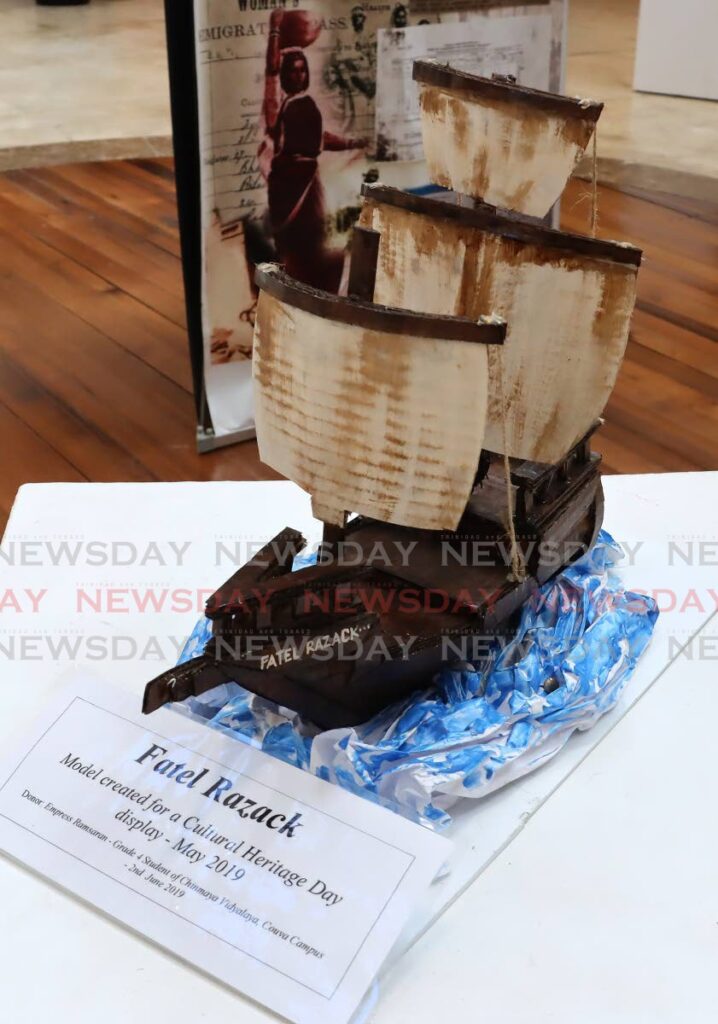Have we truly arrived?

THE EDITOR: Today is Indian Arrival Day and there will be much celebrating. Many will see “arrival” in the literal sense, the first batch on the Fatel Razack in1845, and they have good cause to celebrate such an event, having survived the subterfuge and trickery of “indenture” traders in Uttar Pradesh et al, luring them to a land far away “full of milk and honey” (much like the African slaves, albeit with much more savagery, who were taken away from their homeland by the marauding Portuguese slave traders), and then the rigours of the kala pani (dark waters), only to become victims of a loss of identity on Nelson Island on the outskirts of Trinidad, then on to the barracks to toil in the sugar cane fields.
It was a journey of resilience and great courage worthy of the greatest celebration.
And much more! Bound by “indenture” and fortunate to be spared the whip of the African slave masters, they put their backs to the wheel and in the “cane” they built a life for themselves and their families.
In this process key was their determination not to allow their children to follow in their footsteps of having to toil in the fields, for according to Sam Selvon in his famous short story “Cane is Bitter,” cane was indeed bitter and the emerging mantra was to “take learnin’” to escape such a destiny.
And in this the Canadian missionaries played a pivotal role, mixing their missionary zeal in the sugar estates of Golconda, Petit Morne, Bronte, Retrench et al with a formalised education system accessible to all children of the indentures, of which the Susamachar Church and its subsidiaries, and the numerous Canadian Mission schools and colleges like Naparima, Iere, Hillview, Naparima Girls High School and St Augustine Girls High School are the living manifestation.
The result has been a proliferation of professionals in all areas of our national life helping this country to grow into what it has become.
But even as we have much to celebrate in our “arrival,” the question to ask is whether we have truly “arrived” in a metaphoric sense. Has the journey ended or has it now begun? Having achieved the economic power we possess though our own efforts, has our thinking allowed us to go beyond the domain of such individual achievement into the prospect of entering the halls of political power to further positively impact our lives?
True, throughout our history we have had a taste of such power, but has that been so few and far between as to make us believe we are a “recalcitrant minority” doomed to a second-class role of being perpetually in opposition?
Granted that this role is purely not by choice but by the nature of our tribal politics spawned after independence with the formation of two race-based parties, PNM for Africans, DLP/UNC for Indians, with tribal voting becoming the norm.
But even as both sides are guilty of this tribal voting, the biggest mystery which still remains is why Indians almost always emerge as second best in the final reckoning. Is it that the PNM is more cohesive as a party that makes its victory at the polls almost a foregone conclusion? As for the UNC, is its perennial relegation to second best because of the lack of such cohesion of which the present wrangling among groups is ample demonstration?
But worst of all, driven into their tribalism because of the nature of our politics, are East Indians unable to see themselves as pawns for those who pretend to lead them, the latter full in the knowledge that victory will elude them but content with half the pie?
This leadership problem is key to the UNC’s fortunes in the politics and it is only when we put behind us this “we against them” mindset and strive for a kind of leadership that will bring all the people together, Africans and Indians et al, and make them see themselves as fellow sufferers together, not as a tribe, as we did in 1986, that our political fortunes will change for the better.
It is only then we will have truly arrived!
DR ERROL NARINE BENJAMIN
via e-mail

Comments
"Have we truly arrived?"